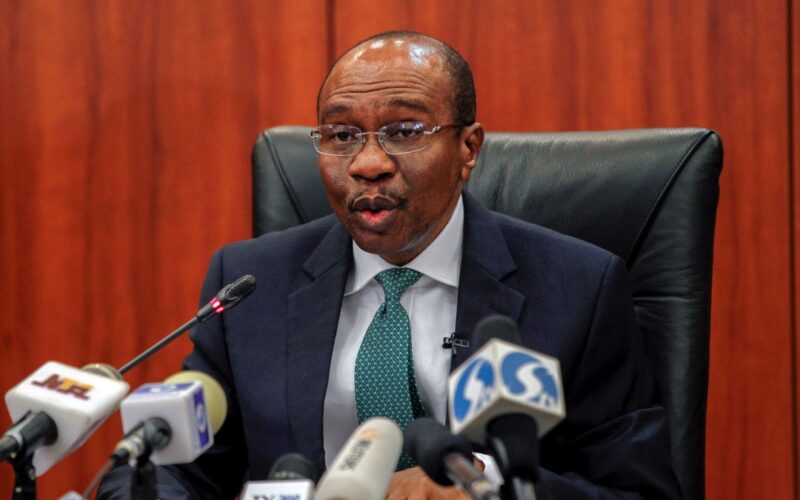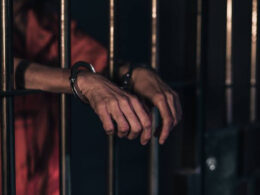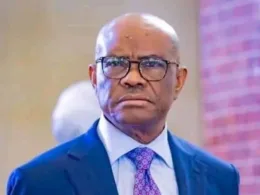In a landmark ruling, Lagos court mandates the forfeiture of multimillion-dollar properties tied to ex-CBN chief, Godwin Emefiele, citing suspected unlawful gains.
In a decisive ruling on November 1, 2024, the Federal High Court in Ikoyi, Lagos, ordered the final forfeiture of $2.045 million, along with seven landed properties and two share certificates tied to former Central Bank of Nigeria (CBN) Governor, Godwin Emefiele. The decision, issued by Justice Dehinde Dipeolu, marks a significant step in Nigeria’s fight against corruption and reclaims assets suspected to have been acquired through unlawful means.
According to court documents, Justice Dipeolu’s order follows a comprehensive motion on notice filed by the Economic and Financial Crimes Commission (EFCC). The case, led by Rotimi Oyedepo, SAN, aimed to establish the illegal acquisition of these properties. EFCC’s media spokesperson, Dele Oyewale, confirmed the forfeited assets include two identical fully detached duplexes at 17b Hakeem Odumosu Street, Lekki Phase 1, Lagos; a 1,919.592 square-meter undeveloped plot on Oyinkan Abayomi Drive, Ikoyi; a bungalow at 65A Oyinkan Abayomi Drive; and a four-bedroom duplex on Probyn Road, Ikoyi. Further properties included a construction site in Agbor, Delta State, set on 22 plots of land; eight units of an apartment block on Adekunle Lawal Road, Ikoyi; and a full duplex with amenities on Bank Road, Ikoyi.
In his ruling, Justice Dipeolu noted that the former CBN governor’s inability to connect these acquisitions to lawful earnings was a crucial factor. The case initially gained traction on August 15, 2024, when Justice Akintayo Aluko, serving as a vacation judge, issued an interim forfeiture order. This preliminary decision came in response to an ex parte application from the EFCC’s lawyer, C.C. Okezie, who argued that the assets in question appeared to be proceeds of illegal activities.
“Moving the application dated August 13, 2024, and filed on August 14, 2024, Okezie had told the court that the properties, cash, and shares were reasonably suspected to have been acquired with proceeds of unlawful activities by Emefiele,” explained Oyewale in a statement. Justice Aluko subsequently mandated that the EFCC publish the interim order in a prominent newspaper within 14 days, offering any concerned party the opportunity to contest the forfeiture.
The court’s condition required any claimant to demonstrate a legitimate interest in the properties. However, no one, including Emefiele, challenged the interim forfeiture order within the stipulated period. With this silence from Emefiele and any other party, the EFCC moved for the final forfeiture. The agency’s counsel, Rotimi Oyedepo, emphasized that the EFCC had fulfilled all procedural requirements, including the publication of the interim order, leaving the court to determine the final forfeiture status.
During the October 11 hearing, Oyedepo presented the final forfeiture motion, reiterating that the EFCC had abided by all court-imposed mandates. After reviewing the case details, Justice Dipeolu agreed with the EFCC’s argument, ultimately deciding that Emefiele’s inability to justify his ownership or the funding source of the assets rendered their acquisition suspicious.
“The conclusion that can be deduced is that there must be something dark about the acquisition of the properties, which Emefiele and the companies do not want to come to light,” stated Justice Dipeolu. He further explained that the lack of documentary evidence or a transparent link to legitimate income reinforced the conclusion that these assets were not lawfully acquired. “That the interested party has failed to demonstrate any lawful interest in the properties and that they were acquired from his legitimate earnings,” the judge added. “I, therefore, order the final forfeiture to the Federal Government of Nigeria of all those properties… which are reasonably suspected to have been acquired with proceeds of unlawful activities.”
Legal experts note that the court’s decision serves as a strong message, highlighting the consequences of unexplained wealth and reinforcing the government’s commitment to enforcing financial accountability among public officials. By reclaiming these assets, the EFCC underscores its dedication to curbing corruption, particularly when individuals in high-ranking positions appear to misuse their influence for personal gain. The scope and value of Emefiele’s forfeited assets have reignited discussions around ethics and transparency in Nigeria’s financial sector.
The forfeited properties are valued in the multimillions and situated in some of Nigeria’s most desirable real estate locations, particularly in Lagos and Delta State. For instance, the eight-unit apartment complex on Adekunle Lawal Road, Ikoyi, occupies a significant 2,457.60 square-meter plot in an upscale district. The industrial site under development in Agbor also represents a valuable asset due to its substantial land area, which could have offered major economic benefits had it been pursued for legitimate ventures. Analysts argue that such real estate holdings underscore the level of financial power wielded by officials, further emphasizing the importance of accountability mechanisms.
While the court’s decision represents a significant victory for anti-corruption agencies, observers note that challenges remain. Enforcing financial transparency and preventing similar cases in the future will require continued vigilance and systemic reforms across Nigeria’s public and financial sectors. To foster a more transparent governance environment, legal experts suggest reinforcing the independence of agencies like the EFCC, increasing funding for investigative efforts, and establishing frameworks that facilitate international cooperation in tracking and retrieving assets potentially hidden abroad.
As part of its mandate, the EFCC is expected to channel the recovered assets back to the federal government, where they can be allocated toward essential public services, infrastructure, and other pressing national needs.










Join our Channel...